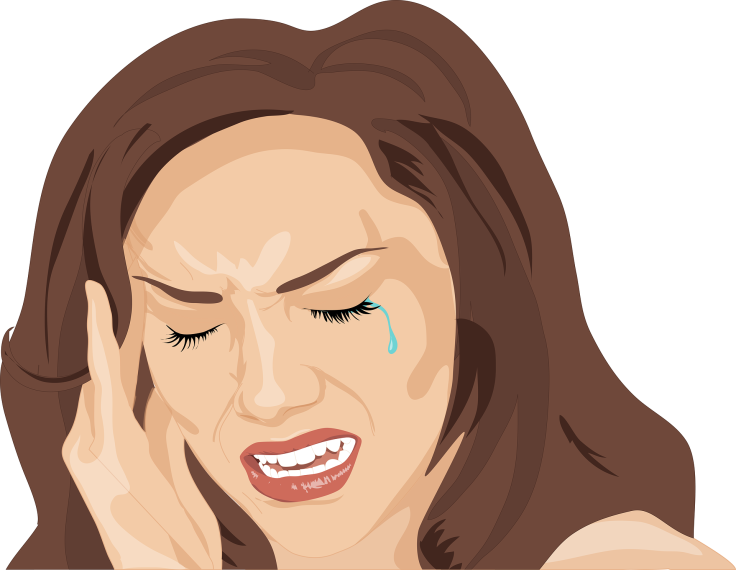COVID-19 Or Migraine: Here's How To Tell Them Apart

The current pandemic situation could be blamed for several strange symptoms including headaches, migraines, and skin problems. Some people might be suffering from migraines that are more frequent and worse ever since the pandemic.
Social isolation, lockdown, working from home, and changes in daily routine could be causing a lot of stress, and migraineurs who have sensitized nervous systems might find their condition worsening during the pandemic.
"Lack of activity makes the migraine worse. Change of schedule makes the migraine worse. Sleep has been impacted, which always makes the migraine worse. And if you get dehydrated, that certainly doesn't help," Dr. Merle Diamond, president and managing director of Chicago's Diamond Headache Clinic told CNN.
Moreover, in today’s reality, people have been suspecting anything from a sneeze to a headache for a symptom of COVID-19. And since the pandemic has been worsening migraine headaches in people, a vast majority even wonder if the sudden worsening of their symptoms could be due to the coronavirus infection.
Here’s how to tell if it is migraine or a COVID-19 symptom:
- First off, a COVID-19-induced headache would be much different than a migraine
- The headache would be accompanied by a fever, persistent cough, and/or lack of taste/smell in case of COVID-19
- COVID-19 headache would be a really tight sort of squeezing sensation which would worsen with fever and cough
- A migraine attack, on the other hand, can be described as a sick headache and migraineurs also experience the migraine hangover where the pain might last up to 14 hours
- During a migraine, people might feel lethargic, irritable and might feel nauseous or have a sensitivity to light or sounds
- Severely ill COVID-19 patients who have very sick lungs tend to be the ones that are getting more serious complex neurological complications including bad headache disorders
Individuals who are suffering from constant or debilitating headaches or migraines should seek immediate help or reach out to headache specialists.
Experts are trying to troubleshoot some of the issues occurring during isolation including lack of sleep, work pressure, and physical inactivity that could be inducing migraine-like headaches in people.
The following are recommended ways to keep headaches at bay:
- Stay well hydrated
- Exercise regularly
- Try meditation and relaxation exercises
- Don’t skip meals
- Refrain from overworking
- Leave work at work
© Copyright IBTimes 2025. All rights reserved.






















